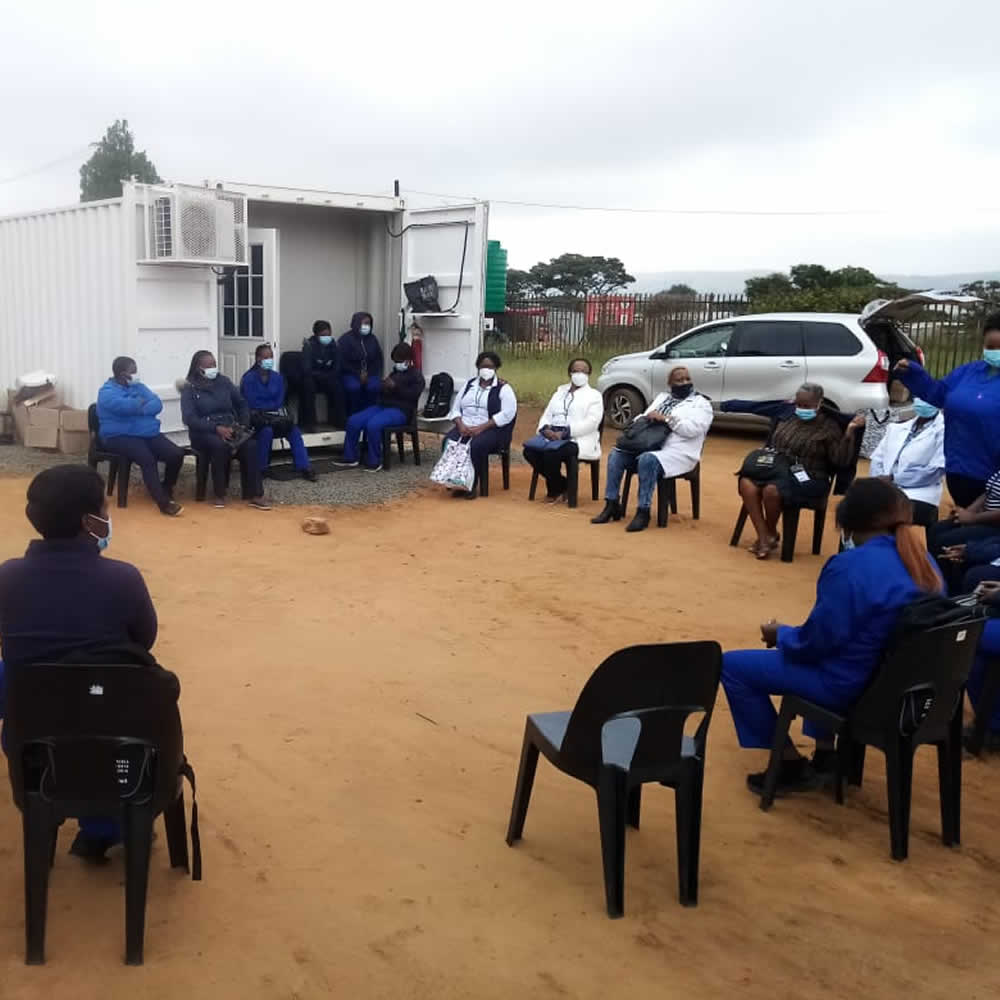The C-SHARP sites, Bishop Lavis and Nomzamo, have estimated populations of 70,000 and 60,000 respectively in 2023. These sites provide a comprehensive understanding of low-income communities in the Western Cape. Bishop Lavis, a well-established predominantly Coloured community, primarily comprises formal housing. In contrast, Nomzamo, a rapidly expanding predominantly Black African community located near the city border, experiences high rates of inward migration and encompasses large informal settlements.
The WCGHW, in partnership with non-profit organisations (NPOs) such as The Caring Network and Masincedane, has been delivering COPC services in Bishop Lavis and Nomzamo for several years. This model involves employing community health workers (CHWs) from the NPOs, who conduct outreach visits within specific geographic areas. They engage with community members in their homes, providing essential medical support, care, and conducting household assessments and screenings for common medical conditions. Thanks to funding from SAPRIN, C-SHARP has been able to increase the number of CHWs working in these areas by more than 50%. This expansion allows for the incorporation of SAPRIN surveillance questions into the household assessments. Furthermore, efforts are underway to re-platform the mHealth application used by CHWs for COPC service delivery, updating it to meet expanding COPC needs and serve as the primary data collection tool for C-SHARP.
While integrating SAPRIN research elements into COPC services presents operational complexities, this model yields benefits for all stakeholders involved. Participants in C-SHARP benefit from the elimination of redundant screening questions from multiple interviewers, saving them time and minimizing disruptions. In cases where health needs are identified during interviews, individuals can be promptly referred by trained CHWs for appropriate care. Researchers can leverage the credibility and trust established by the NPOs and the Department of Health over years of engagement with the communities. This enables access to individuals who may initially be sceptical of a purely research endeavour. The academic rigor and focused approach of the research project has the potential to enhance and revitalise COPC services, while the Department of Health and Wellness can utilize these two sites as incubators for service delivery projects, fostering ongoing improvements in community healthcare. C-SHARP started baseline data collection in 2023.
Contact C-SHARP
Get in touch via hannah.hussey@westerncape.gov.za or andrew.boulle@westerncape.gov.za
